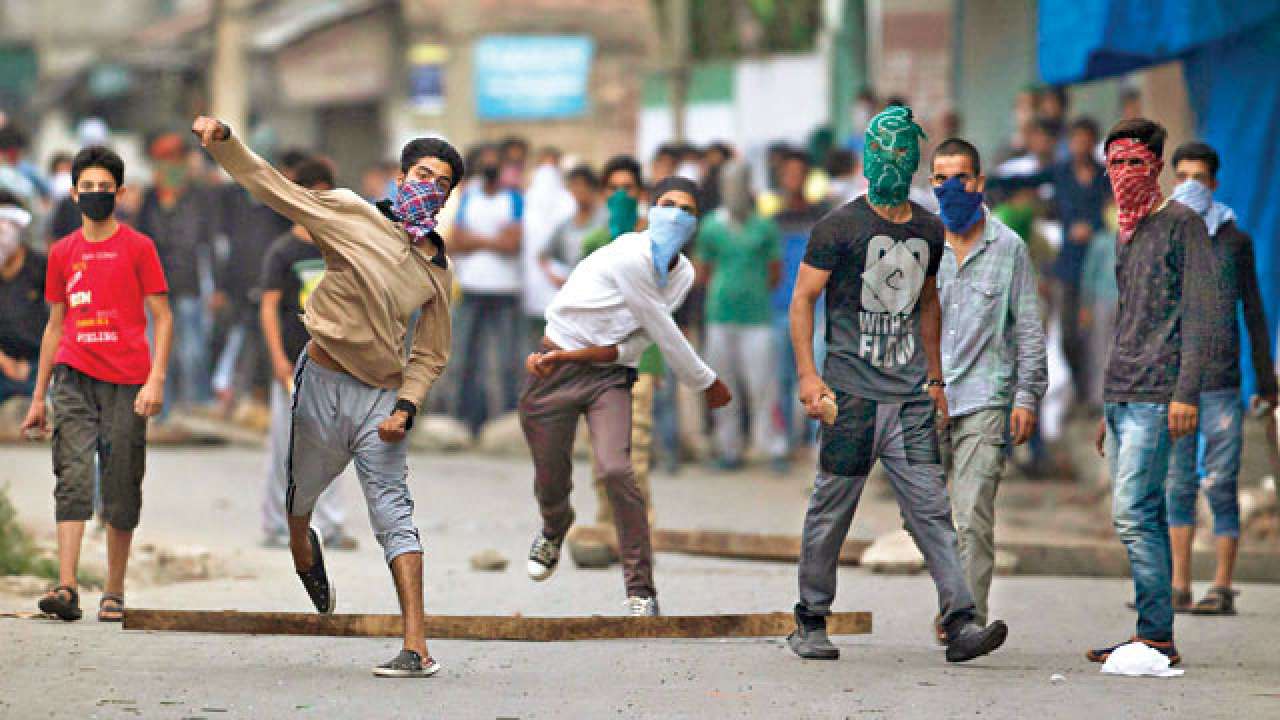
As I have specified in my previous article, Kashmir’s accession to India was unconditional. Article 370 and 35A were only subsequent compensation doled out to a vicious bargainer who would always keep India on the edge.
As part of Sheikh Abdullah’s demands and Nehru playing ball, Article 370 was incorporated in the Constitution, which accorded a dangerously special status to the state. According to Article 370, the Central government’s jurisdiction over the state would be restricted to areas concerning defence, external affairs and communications. It exempted the state from complete applicability of the Constitution of India. Kashmir was allowed to have its own Constitution. Moreover it barred any non-citizen of the state from buying property or owning land in the state. Now Article 370 was only to be “temporary provision” in that its applicability was intended to last till the formulation and adoption of the state’s constitution. However, the state’s constituent assembly dissolved itself on January 25, 1957, without recommending either abrogation or amendment to the Article 370. Hence, the existence of Article 370 in a near permanent form was entirely unintended and is the result of astute political manoeuvre.
Article 35A of the Constitution, on the other hand, is an article that empowers Jammu & Kashmir’s state’s legislature to define ‘permanent residents’ of the state and provide special rights and privileges to those permanent residents. It was added to the Constitution through a Presidential Order in 1954.
First and foremost, the fundamental flaw with both Article 370 and 35A is that they attach a cost to India for keeping Kashmir, which makes for a lopsided, unequal arrangement. Why should an internal territory of a country impose restrictions upon residents of other parts of the country?
To be fair, the restrictions with regard to purchase of land by outsiders is an old law coming from the Dogra era. Nehru’s argument to support the clause was that “Kashmir is such a delectable place that moneyed people will buy up all the land there to the misfortune of the people who live there…” This apprehension could have been addressed by imposing regulations upon the total land area available for sale, making purchase conditional with providing employment to a certain number of local people etc.
The larger and more dangerous impact of this Constitutional provision has been on the psyche of the state. It has prevented the state from developing a sense of belonging for India. These articles have played a big role in keeping the state isolated from the economic and cultural evolution of the country. They carried within them the latent seeds of alienation and secessionism. These seeds were strategically preserved for the first three decades, only to be conveniently sown, nurtured and grown into full-blown militancy by a failed political clan that was finding it tough to deal with the disillusionment of second generation independent Kashmiris.
Now, there are two main apprehensions which Kashmiris often rake up whenever the issue of re-considering Article 370 comes up. The first is the threat to ‘Kashmiriyat’. The second is that outsiders would take up their jobs. Both these apprehensions are concocted and illusory.
Sufism has been one of the crucial pillars of Kashmiriyat. The most famous Sufi saint in the Valley was Nund Rishi, an Indian, also known as Sheikh Noor ud-Din Wali, because of the equal reverence he commanded from both communities. Nund Rishi was born in the Kulgam district, the present day epicentre of terror. Kashmiriyat was founded on inclusiveness and was most open to progressive cultural influences. By shunting out Kashmiri Pandits from the Valley and replacing Sufi influences with Salafi and Wahabi ones, elements within Kashmir throttled Kashmiriyat. The existence of Article 370 and 35A provided them the right ghetto-like breeding ground to do so.
As far as threat to local jobs are concerned, the Abdullahs and others need to tell us where are the jobs? Had there been jobs and entertainment avenues, the locals would not have fallen such easy prey to militancy. At this stage, the removal of Article 370 and 35A are the best bet to pull Kashmir out of the dark tunnel it has been forced into. It will create the right opportunities for investment and job-creation in the state.
Finally, to come to the most important point on why these articles are not only unconstitutional but also hold a grave security threat to the country. The repercussion of Article 35A is that a Pakistani citizen can buy property in J&K, while a legitimate Indian citizen cannot; the J&K Constitution grants residency rights to Kashmiris living in PoK. It goes without saying that this extraordinary leeway has been exploited to foment militancy in the last three decades. It continues to add to our security woes.
Finally, to all those who argue that removal of Article 370 and 35A would amount of a breach of Constitution, let me just say that the permanent existence of Article 370 and 35A violates the Constitution. They violate the fundamental right to equality enshrined in Article 14 of the Constitution.
The legal aspects of Article 370 and 35A aside, Kashmiris need to acknowledge the regressive, psychological damage these provisions have caused to the state. Doing away with these provisions would be in the best interests of the state.
This is the concluding part of the two-part series.
The writer is a well-known author and spokesperson for Mumbai BJP. Views expressed are personal.